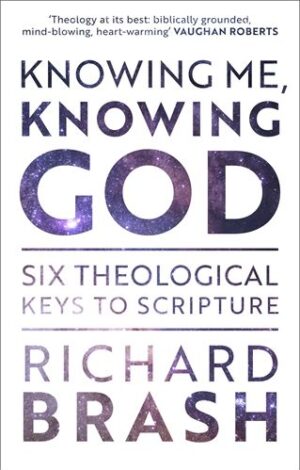Summary
The first of our six theological ‘keys’ to Scripture is: God is not like us. Theologians call this the Creator-creature distinction. It tells us that, at the level of being, God has nothing in common with his creation. This is because God is infinite, and creation (including of course humanity) is finite. This ‘key’ is taught through the Bible in a number of ways: (1) by the distinction between God as Creator and Saviour on the one hand, and man as a creature needing salvation on the other; (2) by the distinction between the necessary and independent being of God revealed in the divine name ‘I AM’, and the dependent and contingent being of man; (3) by the distinction between things that only God can do (and man cannot do) and things than God cannot do (and man can or must do); (4) by the distinction between descriptions of God’s nature as ‘love’, ‘light’, or ‘spirit’, on the one hand, and man as ‘dust’, or ‘flesh and blood’ and so on; (5) by the distinction between God as simple and triune, and man as complex and unipersonal.
The implications of the theological key God is not like us extend to both doctrine and practice. At the level of doctrine, we are guarded from the errors of pantheism, panentheism, polytheism, and Open Theism. At the level of practice, the key has implications for our worship, our self-understanding and moral worth, our salvation, and our prayer lives.
Aims of study
- To appreciate the uniqueness of God in his essence and his works.
- To understand the ‘infinite qualitative distinction’ between God and man, and in what sense we cannot compare God with anything in creation.
- To understand what the Bible means when it describes God as ‘love’, ‘light’, and ‘spirit’.
- To understand why the relationship that God has with creation is different from the relationship that creation has with God.
- To learn various divine attributes and what these tell us about God.
- To see yourself as finite, created, dependent, contingent, complex, and unipersonal.
- To grow in various areas of doctrine and Christian living, by recognising some implications of the theological key God is not like us, and the corresponding understandings of God and self that it opens up.
Starter questions
- Shakespeare famously asked his beloved: Shall I compare thee to a summer’s day? Is it possible to describe something or someone incomparable? How?
- When it comes to knowing God and yourself, which set of concepts interests you more: essence, substance, and nature or personality, identity, and integrity? Why do you think this is?
Questions to review understanding and for discussion
- What does it mean to say that God’s essence and his existence coinhere? (p. 20)
- Do God and Joseph really not share in the quality of being righteous? (p. 21) Why not?
- What is the difference between God’s relationship with creation, and creation’s relationship with God? (p. 28) Why does the difference matter?
- Can you think of any more examples of things than only God can do (or be), beyond the ones that Brash gives on pp. 28-30?
- What does it mean to say that ‘God is light’ and ‘God is love’? (pp. 32-33)
Bible passage: Exodus 3:1-15
- What can we understand about God on the basis of his personal name ‘I AM’? (See also pp. 26-27 of KMKG for more on this passage.)
Suggested application questions
- This chapter describes human beings as finite, created, dependent, contingent, complex, and unipersonal. Which of these descriptions helps you to get a better understanding of how you stand before the unique God?
- How might understanding the theological key God is not like us help you in your reading of the Bible? What about in your Christian life?
- What could you say to someone who says, ‘All this talk of essence and substance and nature is just Greek philosophy. It has nothing to do with the Bible.’
For further study
Donald Macleod’s book Behold Your God (Fearn: Christian Focus, 1995) is a great place to begin further study of some of the themes in this chapter. It’s a rigorous but accessible treatment of the doctrine of God. As the quote on the front cover of my edition of Macleod’s book says, ‘It is impossible to honour God as we ought, unless we know Him as He is.’
For something a bit more advanced, you might want to try Cornelius Van Til, Introduction to Systematic Theology (Phillipsburg, P&R Publishing, 2017). This is a new edition, with an introduction and helpful notes by William Edgar.
On the doctrine of humanity, I’ll offer some references at the end of the next study.



